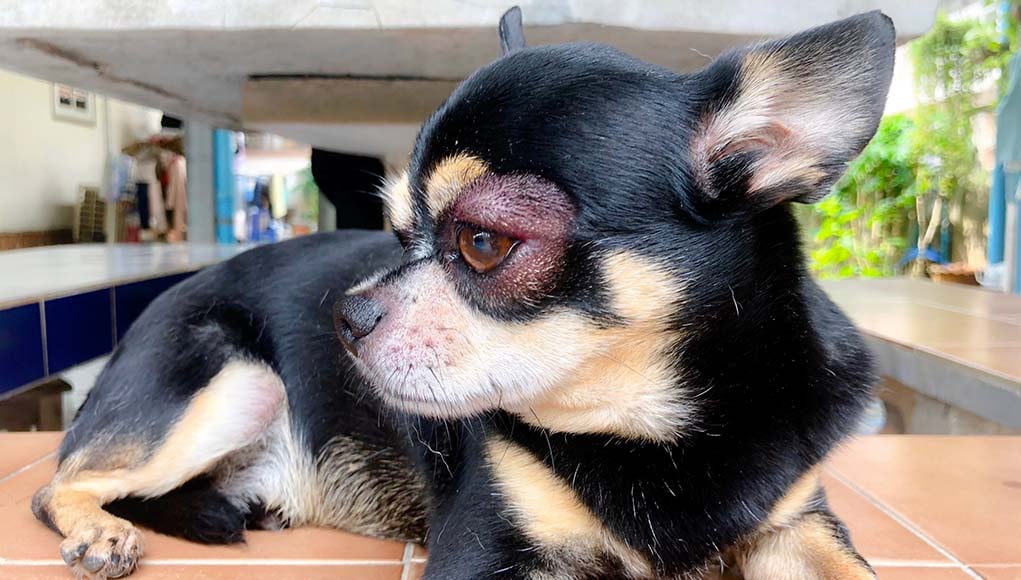Take A Bite Out Of Dog Troubles With These Suggestions

The article in the next paragraphs in relation to Pets is seriously insightful. Have a go and draw your own personal final thoughts.
What Anyone Who Owns A Dog Needs To Know
Dogs are wonderful companions, and owning one can be a lot of fun. If you are considering owning a dog, knowing how to properly care for him is essential. This article contains some great tips that can help you to select the perfect pet for you and also care for him properly.
If your dog is very rowdy or easily excitable, experts recommend that you don't bring them along on vacation. Many times the thrill and confusion of a new area filled with strangers is too much for the hyper dog and unpleasant incidents may occur. Find a great kennel to care for your pooch instead.
Groom your dog frequently. Keep them clean and reduce the amount of hair they shed by brushing them frequently. When the weather warms up, start checking them for ticks and fleas daily. Dogs generally require a few baths a year. Before you give your dog a bath, make sure to cut or comb out mats and tangles. Rinse their coat thoroughly to avoid dirt sticking to any soap residue.
Pet-proof your home before bringing a dog into it, just as you would for a crawling toddler. You need to move anything toxic to a higher shelf and consider the danger that plants may pose if nibbled by your dog. Remember that anti-freeze is deadly and that leaving things like pennies or crayons on floors can pose a choking hazard to curious pups.
If your dog behaves badly, correct the behavior immediately. The longer you ignore it, the more difficult it will be to correct it later, and the consequences could be dire. Neglecting your dog's behavior can lead to injuries.
Much like people in the United States, many dogs are overweight. Having a few extra pounds on their frame can lead to a number of health problems, like cancer or diabetes. Many owners simply overfeed their pets. Talk to your veterinarian about how many calories your dog needs each day so you can adjust their meals accordingly.
Have a rotating schedule for dog-related responsibilities in your home. It's not fair for one person to always be taking care of him, and he'll feel more like a family pet if everyone pitches in. Kids often lose interest in a pet and leave the work to parents, but it's important that you teach them to keep up the commitment!
It is very important for you to keep your dog's ears clean. Keeping the inside of the ears clean will help prevent infections of the ear. This is also a good time for you to inspect the ear for fleas, ticks and any other pests that could have made your dog's ear home.
Groom your dog frequently. Keep them clean and reduce the amount of hair they shed by brushing them frequently. When the weather warms up, start checking them for ticks and fleas daily. Dogs generally require a few baths a year. Before you give your dog a bath, make sure to cut or comb out mats and tangles. Rinse their coat thoroughly to avoid dirt sticking to any soap residue.
When training your dog, consistency is everything. You must be consistent at all times. If your dog is not allowed to jump on people as they walk in, don't allow your dog to do it even if a person says they don't mind being jumped on. You should also make sure that everyone that's around your dog understands your rules and are consistent with them.
Clean up completely if your dog uses the bathroom on your floor. Use a cleaner specifically made to clean up such messes. If you still smell poop, your dog will too and might strike again.
The kind of leash you use when walking your dog is very important. A small leash that would fit a small dog, like a chihuahua, is not going to fit a Rottweiler or pit bull. Get a leash that will fit your dog comfortably but also provided them with safety.


Don't bathe your dog after you have applied a flea or tick medication. Some medications tout that they are waterproo, but they only mean against rain or swimming. They will largely wash away with a dog shampoo, rendering the treatment ineffective. If you must bathe the dog after a treatment, use a soap free shampoo.
If you pick up a dog from a shelter, make sure that he has been seen by a medical professional. You don't want to bring home a sick dog unless you are aware of it, particularly if you have other dogs at home. Make sure to ask if the dog you have chosen has been around sick dogs in the past few weeks as well.
If your puppy has an accident, take the time to clean thoroughly. Use a cleaner that's professional strength and follow that up with a good odor remover. If you still smell dog waste, the dog could be emptied to return to the scene of the crime and repeat the actions.
Owning a new puppy is very similar to having a new baby. Puppies need a lot of attention and have to be taken care of constantly. They are not ready to be left alone for long periods of time and need to have a fair amount of attention devoted to them.
Even if your dog does not spend the majority of his time outside, it is still important that you bring him or her to the vet for their yearly shots. Your dog could come in contact with other dogs at the dog park or at your home. If the other dog is sick, it could pass on to your dog. This is why it is important that they are vaccinated every year.
When crate training a dog, be sure to allow it to stop making noise (barking, whining, crying) for at least 30 seconds before opening the crate up. This is important because otherwise the dog will believe that as long as it keeps making noise, you will come and open the crate. It can be hard to do this, but is necessary. Of course, always be sure that the dog is safe and not making noise for some other reason.
Once dog breeds beginning with p post are equipped with great advice about caring for your dog, you will be better prepared for the day to day life with him. You will be better capable of dealing with any issues that occur. Take notes and post them around your house so when you question what you are doing, you can get a quick reminder of what you should do.
Miniature Labrador: The Smallest Labrador Retriever
A mini labrador? What kind of special breed is it that makes our beloved Lab appear in miniature form? If you’ve heard about the smallest Labrador Retriever lately and are wondering what this craze is about, this article will surely help you.
So let’s first deal with the question of what the smallest Labrador Retriever actually is…
What is a Mini Labrador?
A Miniature Labrador is a special breed of Labrador that only reaches a size of 40 to 45 cm. The Miniature Labrador does not differ from a normal Labrador except for the size. Its friendly nature and family-friendly character are the same.
Miniature Labrador Retrievers aren’t actually a breed of dog in their own right.
They exist because resourceful breeders bred them so small. Incidentally, with questionable methods and a number of possible problems that the dogs and their owners can face later.
Unlike other dog species, there are actually no Labradors in miniature format. Especially not as a recognized breed, as is the case with schnauzers, poodles or dachshunds, where there are actually recognized “teacups” or “mini” breeds.
Mini Labrador Retriever Size
A Mini Labrador Retriever usually does not grow taller than 40 cm to 45 cm. With this size they reach a maximum weight of up to 20 kg.
So they are not quite as small as one would imagine. A dog with a size of 45cm also needs space, a means of transport in the car and is by no means a sofa buddy like the very small dogs.
Miniature Labrador Experiences
There are no real long-term experiences with miniature Labrador Retrievers. The breeding of this Labrador Mix is simply too new for that.
However, there are very controversial discussions about how artificial small-scale breeding affects the health of dogs and what problems they will have to endure in their development later on.
To understand this a little better, one has to look at how miniature Labradors are bred in the first place.
How are miniature Labrador Retrievers bred?
Now comes the part of the article that I’m going to make a lot of enemies with.
Namely with the breeders who currently breed and offer Miniature Labradors.
The reason for this is relatively simple: As a visitor to my blog and dog lover, I can only explain to you what the reality is when breeding miniature Labradors.
I can neither speak nicely nor approve it.
Breeders use the small stature of the parent animals
Short stature occurs not only in humans, but also in dogs. It actually results from a genetic flaw that causes bone growth to slow down significantly.
End of the story: Too little bone growth = short legged Labrador Retriever.
I’ll explain it in a very simplified way and one or the other breeder will probably scold me. *wink*
Miniature Labradors are bred by crossing two Labrador Retrievers that have this exact genetic disorder. If both parents have a natural short stature and pass this on in their genes to the next generation, in the end a puppy is born that never reaches the full size, but remains a short legged Labrador Retriever.
If you were to do that with people, there would be a huge social outcry. And rightly so!
Nobody would dismiss that with a “but they are so cute”.
Crossbreeds with small breeds of dogs
There is a second variant that breeders use to be able to breed the smallest Labrador Retriever at the end of the day.
And that is mating with smaller breeds of dogs. A Labrador Retriever is crossed with a smaller but similar breed of dog.
In the end a smaller dog is born, but it is not purebred. To offer this dog as a pure-bred “Miniature Labrador” would almost be a deception. Because dog breeds beginning with p methods is not purebred.
In addition, this type of breeding can lead to diseases and long-term consequences that do not make your four-legged friend’s life more pleasant.
Health Risks for the Smallest Labrador Retriever
By now we’ve talked a lot about the potential health hazards of Miniature Labs, but I haven’t pointed out any possible consequences directly to you.
Labradors are inherently a breed of dog that presents relatively few health problems.
Mini Labradors are very special breeds that bring a few risks.
https://petsroof.com/smallest-labrador-retriever/
As a fervent reader on Dogs, I figured sharing that blog post was worthwhile. Are you aware of somebody else who is interested in the niche? Please feel free to share it. I take joy in your readership.
